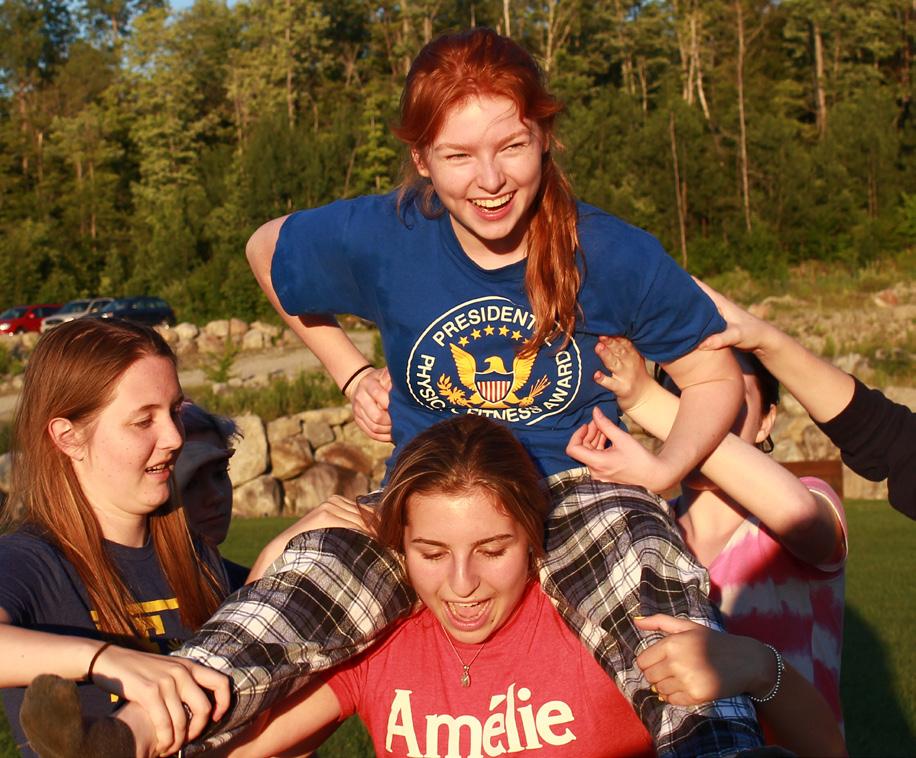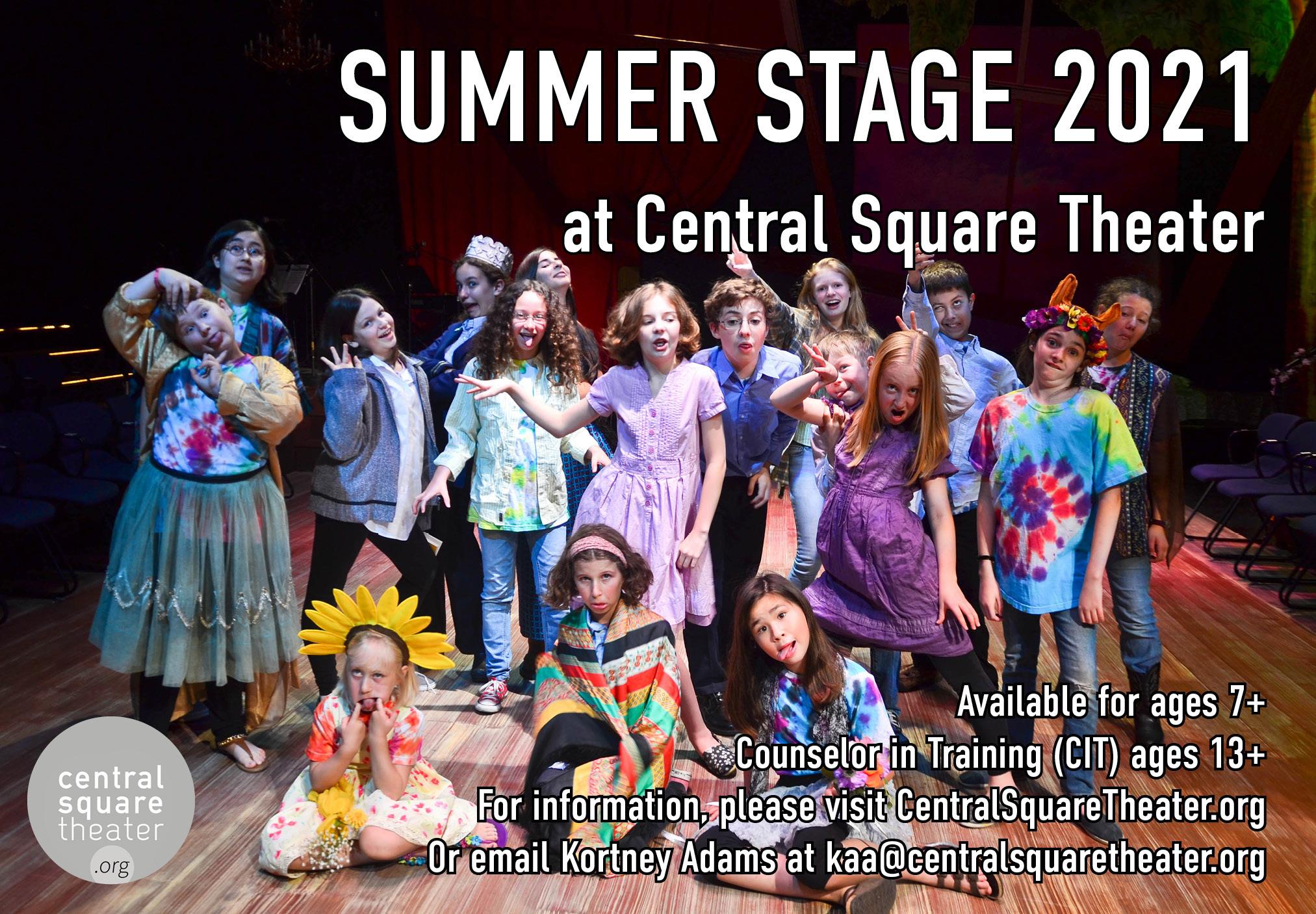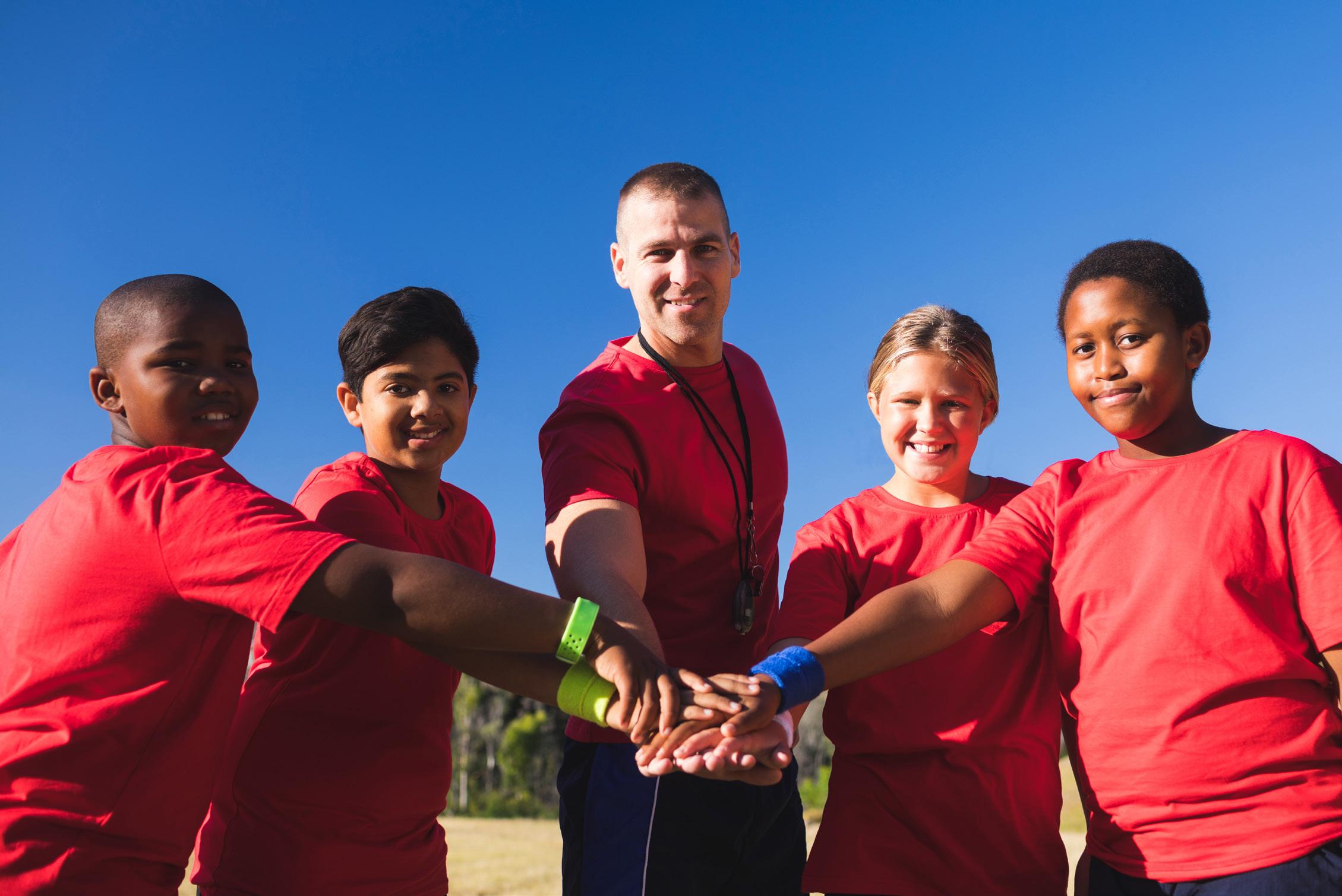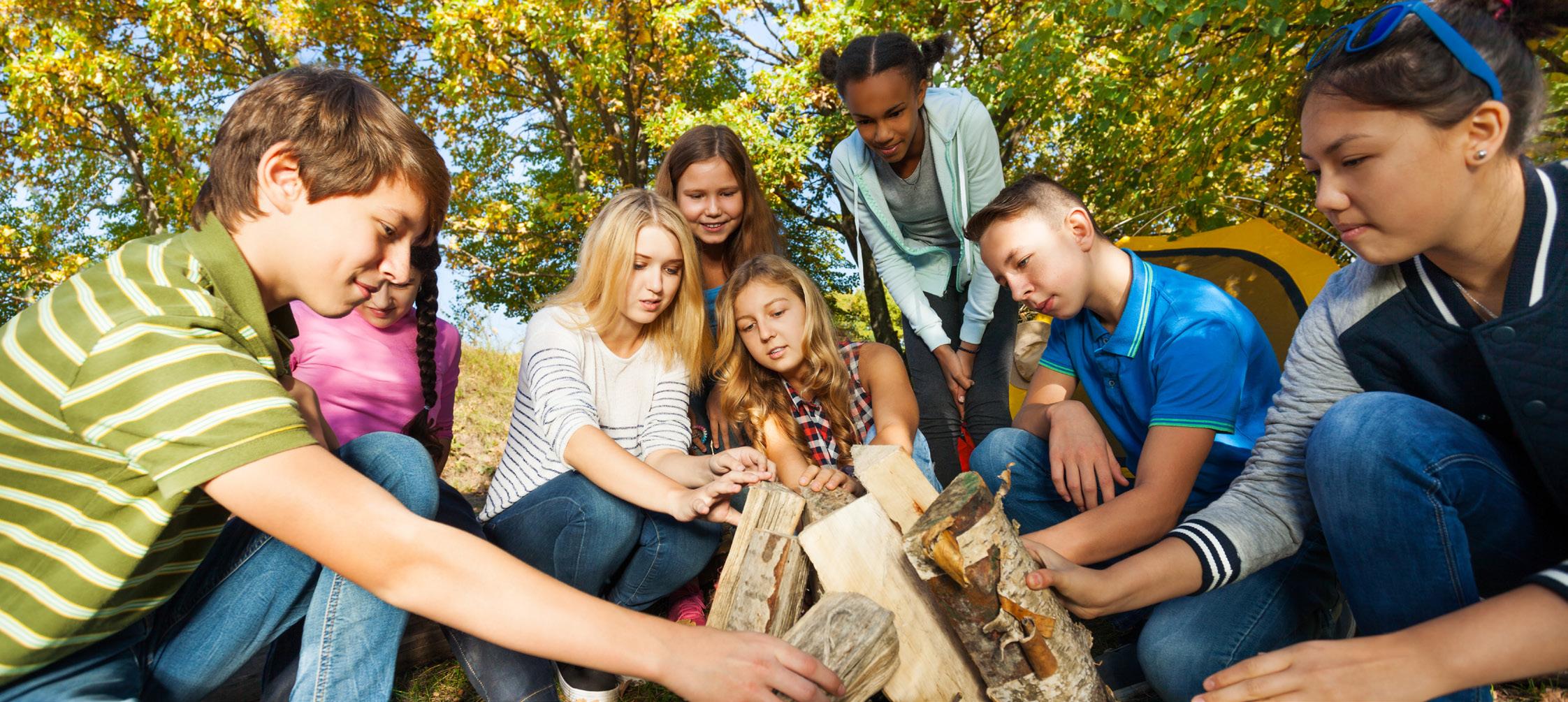
5 minute read
Benefits of Special Needs Summer Camps
AT AGE 6, KIM KELLY PAID HER FIRST VISIT TO A SPECIAL NEEDS RESIDENTIAL CAMP.
It was an experience she and her family will never forget.
Up to this point, Kim had lived a pretty sheltered life, her mother Ruth Kelly explains. “Because she has a hearing loss and an orthopedic problem, it was natural for me to want to hold her close.” By bringing Kim to camp, her mother realized two things: “My daughter needed to learn to do things on
By Denise Morrison Yearian
her own, and I needed to let go a little.” For the Kellys, it was a positive experience.
There’s a host of benefits children derive from attending camp, but for kids with special needs, those benefits are amplified, says Amy Van Huss, administrator and director of Club Kodiak (a program for young adults) at Camp Kodiak in Ontario, Canada, a therapeutic, residential summer camp for children and teens with and without diagnoses like Attention Deficit Disorder, Attention Deficit Hyperactivity according to the campers’ needs. This gives them a chance to shine.”
That’s what 9-yearold Tiffany Wells found as a camper. During the school year, Tiffany, who has cerebral palsy and asthma, played on a softball team and in a community bowling league; but because none of the children she played with were disabled, the competition wasn’t always equal.
“Attending a special needs camp allowed Tiffany to compete on more even ground because all the other kids were playing with some kind of disabil-
Disorder and Asperger Syndrome. “ Our goal is to provide all the fun of a traditional camp, but in a safe, supported setting,” Van Huss says. “Campers with special needs typically thrive in a structured, predictable environment with as few changes in schedule as possible.”
Heidi Haldeen, summer program specialist for an Easter Seals Camp, agrees. “At a special needs camp, kids have the same opportunities they have at traditional camps. The only difference is the activities are modified
ity,” reports her mother Linda Wells. The result? “Tiffany saw that she could actually win and come out on top.”
According to Van Huss, “Camp Kodiak is a place where you are accepted and supported, and where you have the chance to grow. We offer as many different activities as we possibly can, everything from sailing to high ropes to waterskiing to the theater arts, with the hopes that they will find an activity they can continue at home. Seeing the growth in a camper socially, academically and functionally, as well as the growth in confidence – from the time they arrive at camp to the time they board the bus or climb into their parent’s car to go home – is truly amazing.”
Such was the case with Kim. When she first attended camp, she was afraid of the water. “She cried just getting her face wet,” her mother says, but “by summer’s end, she was jumping in the deep end and had received her first American Red Cross swimming certificate.”
While some parents and caregivers choose a summer camp for their children’s fun and recreation, others use it to continue education and therapy goals, and teach life skills. This is accomplished one step at a time. “It may mean being 10 minutes late for breakfast so Timmy can learn to tie his shoes by himself,” says Haldeen.
Developing new skills isn’t the only thing kids glean at a special needs camp. They learn about friendships, too. Last year when Tiffany went to camp, there was a girl in her cabin with a more severe case of cerebral palsy than Tiffany. Because Tiffany had spent her whole life with people helping her, she naturally wanted a chance to help others. “When we went to the dance, I got to push my new friend around in her chair,” says Tiffany. “I also got to help her eat.”
Van Huss notes, “Many of our campers have trouble making friends and maintaining friendships in their home environments. Just knowing there are other kids out there, just like them, is comforting. With our focus on social skill-building and with our specialized staff helping to guide social interactions, many of our campers leave having made lifelong friendships.”
When camp is over, what do the children take with them? For some, new skills. For others, new friends. And for many more, simply a fond memory of having had a break from their routine at home.
“Our campers look forward to returning year after year,” says Haldeen. “For many, we are their summer vacation. The minute they drive away, they are making plans to return next year.”
Denise Morrison Yearian is the former editor of two parenting magazines and the mother of three children.
Inclusion Camps
Camps designed for specific needs offer very specialized care, but some families make inclusion their goal, preferring a traditional camp that caters to all children. Before enrolling your children in a camp, visit the facility and make sure it meets your expectations and needs. Here are a few things to keep in mind before choosing a traditional camp or special needs camp:
• Is the camp accredited by the American Camping
Association (www.acacamps.org) or the National Camp Association (www.summercamp.org)? Does it meet the organization’s standards for kids with special needs, including facility and staffing requirements? • What training and experience do the directors and counselors have in working with kids with needs similar to your child’s? • Ask for the names of families whose children have attended the camp who might be willing to discuss their experiences with you. • What is the ratio of counselors to campers? For children with severe disabilities, the ratio should be at least one counselor for every three campers. What are the camp’s health and safety procedures? Who is the health care consultant? What emergency arrangements been made with a local hospital? • Can I visit the camp to see the program firsthand? Do they have sessions year-round? If it’s a regular camp, are special efforts or programs in place to integrate a child with special needs? Is it accessible for children with limited mobility? • What about the camp’s registration fee? Keep in mind that expense and quality may not go hand-in- hand because many specialized camps charge only a fraction of actual costs. Find out if scholarships are available. – Denise Yearian
Let’s Get Back Onstage!
10-Day, 3-Week, and 6-Week Programs Ages 9-17

Exceptional Theater
• Acting, Dance, Voice and Technical Training • 7 Performance Venues • Productions Directed, Designed, and
Choreographed by Professional Theater
Artists from Broadway and Beyond • Focus on Ensemble Values and Community
• Unrivaled Sunsets • Campfires, S’Mores, Stargazing • Outdoor Musicals and Shows • Camp Activities &
Coastal Adventures • Screen-free and Unplugged!
• Inclusive Campers and Staff • Mentorships and Post-High School Coaching and Support • Staff-to-Camper Ratio of 2:1 • Intentional Focus on Joy, Creativity, Gratitude and Community
A Summer in Maine












